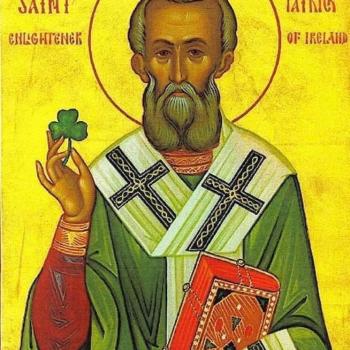This focus produced a radical change in a world where, despite notable but limited exceptions of political decentralization, slavery and nearly universal and unyielding despotism had ruled, where people were treated as mere members of a group without rights (see Thompson 2005, Byock 1988, Friedman 1979, Peden 1977). With Christianity, each and every person is "a child of God" or a holy object (res sacra homo) who has free will and is individually responsible for the choices he or she makes. In this tradition, Thomas Aquinas stated, "A man can direct and govern his own actions also. Therefore the rational creature participates in the divine providence not only in being governed but also in governing" (quoted in The Victory of Reason, p. 25).
Natural Law
Working from this Christian background, Lewis stressed the importance of the natural law of moral ethics, a code of moral conscience that is inescapable and defines each person as human. Such morality exists on its own independent of subjective choices or experiences, just as one may grasp the inherent truism of mathematics or natural physical laws such as gravity. Lewis drew on the natural-law insights of such thinkers as the apostle Paul, Augustine, Magnus, Aquinas, Cicero, Grotius, Blackstone, Acton, and Locke, and he considered modernist dismissals of such work to be fundamentally erroneous. In particular, both Aquinas's notion of "common sense" (communis sensus) as described in his Summa theologica and the legacy of rational theism found in Jewish, Islamic, Christian, and certain pagan writers -- the core philosophical system of the West -- had a powerful effect on Lewis. To him, the culture of "modernism" is not just an historical aberration of this "common sense," but a profound threat to the pursuit of truth, goodness, and civilization itself.
This "common sense," or Lewis's notion of common rationality, consisted in part of each individual human being's intrinsic understanding of an objective, universal, and natural legal order of truth and morality (the "natural law," or what Lewis called the "Tao," literally meaning the "way" or "path," which should not be confused with the Chinese naturalist philosophy of Taoism/Daoism, the various forms of which uphold nihilism, ethical skepticism, relativism, mysticism, intuitionism, and primitivism), upon which he or she discerns, chooses, and acts (The Abolition of Man, pp. 18-19, 83-101). For Lewis, each individual responds to and can come to know and experience this external reality of truth -- it is a "common knowledge." This insight is similar to Adam Smith's view, as expressed in his 1759 book The Theory of Moral Sentiments, that individuals are born with an innate moral conscience and "sympathy" for the well-being of others and can maintain them by following the natural law (pp. 47-48).
Lewis likewise claimed that
[i]f a man will go into a library and spend a few days with the Encyclopedia of Religion and Ethics he will soon discover the massive unanimity of the practical reason of man. From the Babylonian Hymn to Samos, from the Laws of Manu, the Book of the Dead, the Analects [of Confucius], the Stoics, the Platonists, from Australian aborigines and Redskins, he will collect the same triumphantly monotonous denunciations of oppression, murder, treachery and falsehood, the same injunctions of kindness to the aged, the young, and the weak, of almsgiving and impartiality and honesty. He may be a little surprised (I certainly was) to find that precepts of mercy are more frequent than precepts of justice; but he will no longer doubt that there is such a thing as the law of nature. . . . [T]he pretence that we are presented with a mere chaos -- though no outline of universally accepted value shows through -- is simply false and should be contradicted in season and out of season wherever it is met. Far from finding a chaos, we find exactly what we should expect if good is indeed something objective and reason the organ whereby it is apprehended -- that is, a substantial agreement with considerable local differences of emphasis and, perhaps, no one code that includes everything (Christian Reflections, pp. 77-78, emphasis in original).




